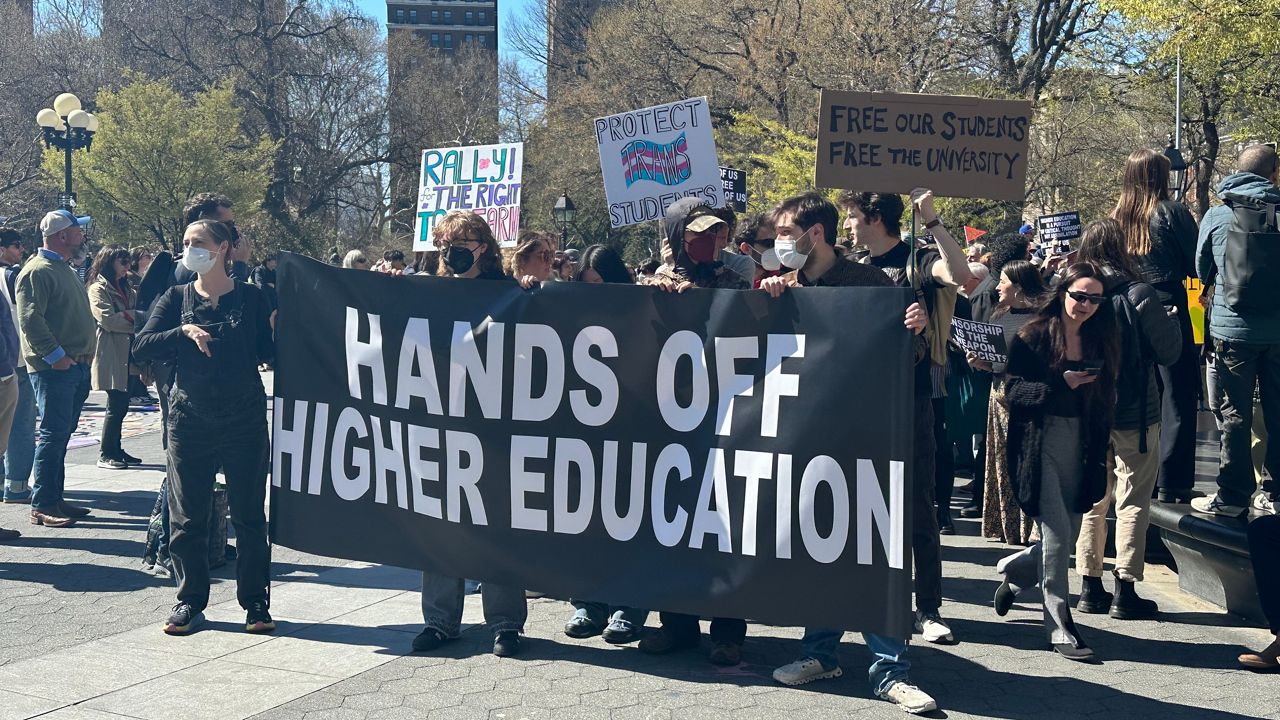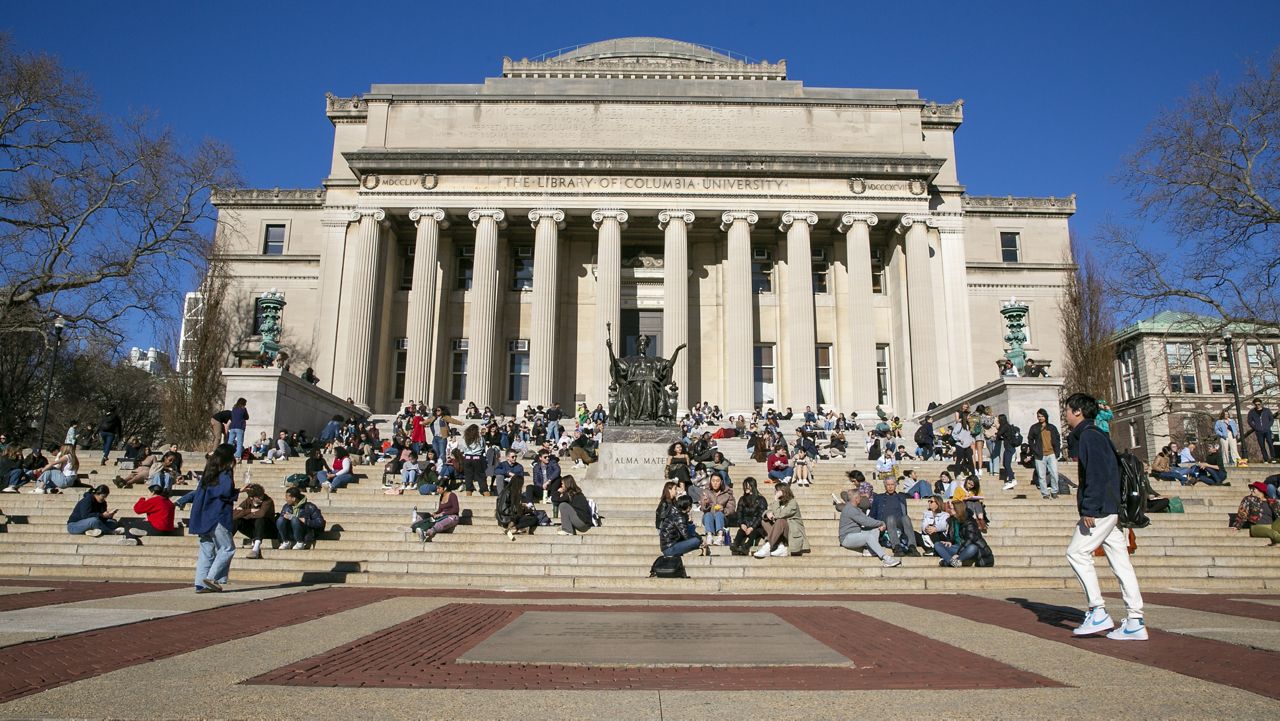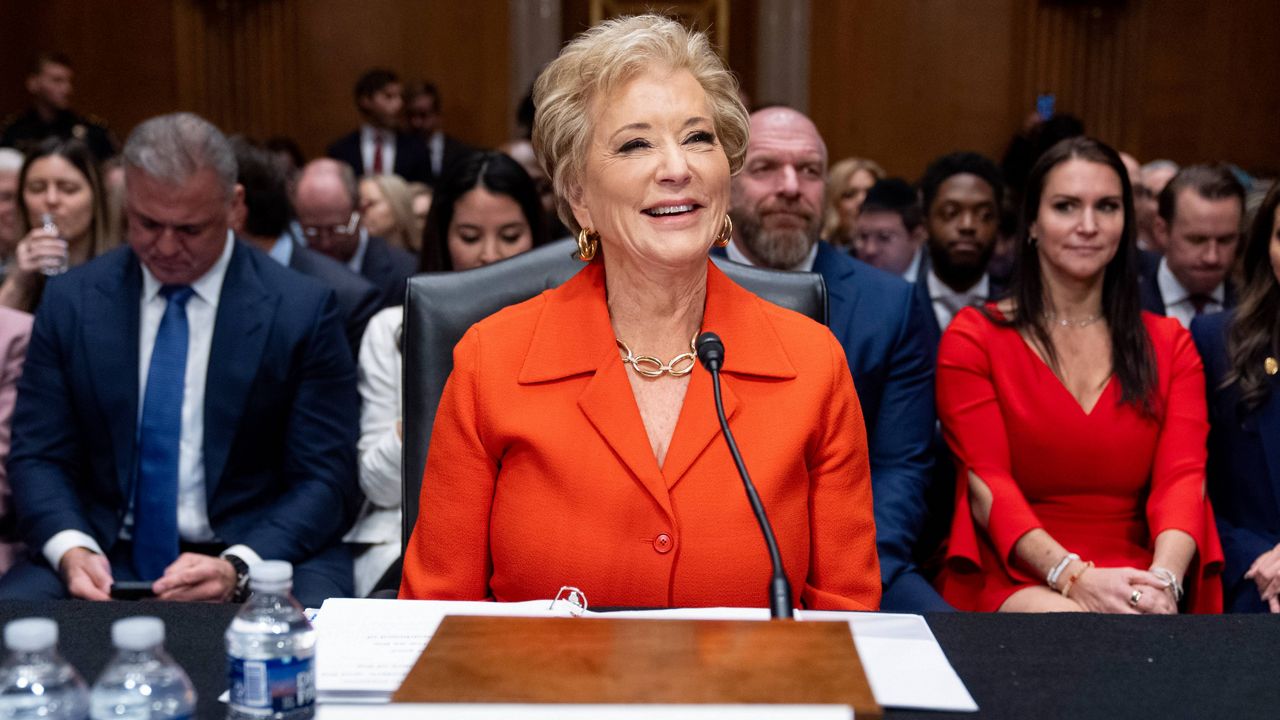City officials assure parents that the possibility of a school bus driver strike will not interrupt school bus service this week, despite the fact the union representing bus drivers and the companies that employ them haven’t reached a deal on a new contract. Public school starts Thursday.
Despite this, parents are worried about what will happen moving forward.
A handful of those parents and supporters rallied outside the Department of Education's headquarters Tuesday with concerns about how to get their children to school if school bus drivers strike.
What You Need To Know
- City officials assure parents that the possibility of a school bus driver strike will not interrupt school bus service this week, despite the fact the union representing bus drivers and the companies that employ them haven’t reached a deal on a new contract
- Public school starts Thursday and some parents are worried about what will happen moving forward
- A handful of those parents and supporters rallied Tuesday with concerns about how to get their children to school if school bus drivers strike
“I am here as a school bus parent,” said Flora Huang, who is with the Parents to Improve School Transportation.
While the Amalgamated Transit Union, which represents about half of public school bus drivers, said there won't be a strike this week during the first week of school, drivers transporting between 80,000 and 150,000 kids each day could walk off the job moving forward if the companies employing the drivers don’t reach an agreement with the union.
“We’ve been fighting for an equitable bussing system for years, a decades-long issue for the Department of Education,” said Kaliris Salas, the Manhattan borough president appointee to the Panel for Education Policy. “We don’t have our own fleet because our system is so large. So we’re dependent on these different unions of bus drivers to be able to support transpiration for our students.”
Huang remembers the last school bus strike in 2013 when her older son was being bused to school.
“I had to bring my son from Washington Heights to East Harlem. And I also had to leave work early,” Huang said.
Although her younger son also depends on yellow buses, they live closer to his school. Still, Huang doesn’t want other parents to experience the same burden.
“So we can take the train, but there are families who live much further away,” Huang said. “So that’s my concern.”
City officials said a strike could impact about half of its 10,000 school bus routes. If a strike occurs, schools would give students emergency MetroCards each day. Students with disabilities, in temporary housing or foster care, and with transportation exceptions will be given prepaid rides or will be reimbursed for taxi or personal rides.
Protesters said the city should be guaranteeing student’s transportation no matter what, not services that require parents to book rides or wait to be reimbursed for transportation.
“What we’re asking for in terms of addressing this strike is for the Department of Education to make a one-time school allocation for every school in order to provide car service or transportation services to families who just cannot afford to do so,” Healey said.
Protesters are also asking the Department of Education to provide weekly Metrocards for students and parents, and to work with the MTA to increase the frequency of bus services on lines that transport large numbers of students.






_DNT_Columbia_Protest_CLEAN_FOR_APPROVAL)


